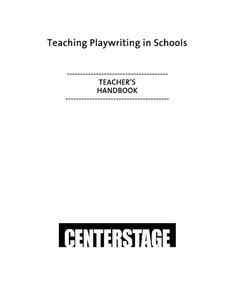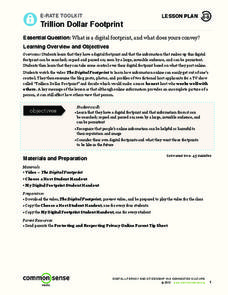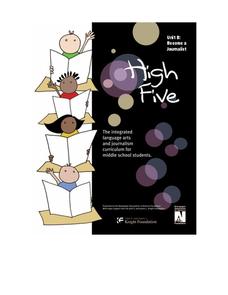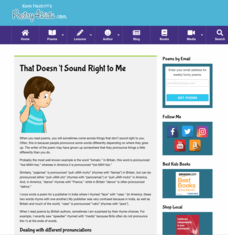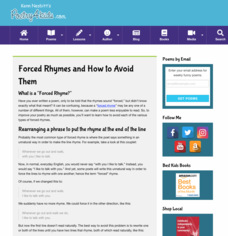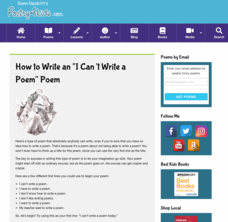Echoes & Reflections
Jewish Resistance
Resistance to the Holocaust took on many forms. Learners explore the passive and active resistance of Jewish people who continued their practices and observances, as well as organized resistance against the evils of the Nazis. An...
Echoes & Reflections
The "Final Solution"
Nazi policies shifted from deportation and imprisonment to extermination of the Jewish people in death camps in the "Final Solution." Learners examine photos of artifacts, read poetry written by survivors, analyze testimony from...
Echoes & Reflections
Nazi Germany
The Holocaust was an evolution of anti-Semitism, scapegoating, and targeted violence against Jews with Nazi policies. A resource unpacks the escalation in violence, along with the erosion of democratic institutions, during the 1930s....
Echoes & Reflections
The Children and Legacies Beyond the Holocaust
Using video testimony, primary source documents that detail international agreements, and structured discussions, learners consider the precarious position of children during the Holocaust and other international conflicts, and how to...
Echoes & Reflections
Rescuers and Non-Jewish Resistance
What does it mean to be a rescuer during the time of the Holocaust? Learners consider the role of those who resisted the Nazi invasions, including hiding Jewish people, throughout Europe. Activities include listening to the testimony of...
Echoes & Reflections
The Ghettos
Young historians examine primary sources, including diaries, poems, and photographs, to consider the conditions in the ghettos and how they fit into the escalation of the Third Reich's plot against the Jewish people.
Echoes & Reflections
Studying The Holocaust
While many young scholars are familiar with the Holocaust, they may not understand the specific history that led to the unprecedented atrocity. The first lesson in the unit helps teachers gauge their pupils' background knowledge. A...
California Department of Education
I Have “M.I.” Strengths!
There are so many ways to be smart! Can your class identify their intelligences? The third of five career and college lesson plans designed for sixth graders challenges them to assess their unique skills. Once they determine their...
American Press Institute
Introductory News Literacy
Aspiring journalists learn about media literacy, journalism, and the press. Units come complete with handouts, assignment rubrics, notes, and extension suggestions. Each unit also comes with a list of vocabulary words and learning...
Learning to Give
Teaching Playwriting in Schools
The world is a stage, and so is your classroom! Hone the skills of the next generation of Tony® award winners with a set of exercises, reference pages, writing prompts, and excerpts from famous plays.
Henry Ford Museum
Human Impact on Ecosystems
An environmenta science unit includes three lessons plus a cumulative project covering the ecosystem. Scholars follow the history of the Ford Rouge Factory from its construction on wetlands and how it destroyed the...
Common Sense Media
Trillion Dollar Footprint
Learners explore their digital footprints, and discover how information they put online can easily be searched, copied, forwarded, and seen by a large audience.
Online Publications
Become a Journalist
Explore the newspaper as a unique entity with a detailed and extended unit. The unit requires learners to consider the newspaper's role in democracy, think about ethics, practice writing and interviewing, and examine advertising and news...
Curated OER
"I Can” Common Core! 6th Grade Writing
It is impossible to know whether one has reached a goal without first knowing the goal. Help your sixth graders reach all the Common Core writing standards by giving them a checklist written in language they will understand. As you teach...
Penguin Books
A Guide to the Works of Jacqueline Woodson
The works of Jacqueline Woodson introduce readers to diverse characters and themes. A guide covers many of the author's best-known books such as Brown Girl Dreaming and Locomotion. Dive & Discuss and Explore & Extend activities...
Echoes & Reflections
Contemporary Antisemitism
Despite the recognized atrocities of the Holocaust, anti-semitism continues. The 11th and final installment of the Teaching the Holocaust series explores the long-term effects of the Holocaust on modern anti-semitism, asking pupils to...
Echoes & Reflections
Perpetrators, Collaborators, and Bystanders
After the Holocaust, the world grappled with how to bring justice to the Nazis. But what to do with the thousands—if not millions—who allowed it to happen? Young historians consider the issues of guilt, collaboration, and responsibility...
Echoes & Reflections
Antisemitism
Propaganda and anti-semitism were linked to evil ends during the Holocaust. Using video testimony of Holocaust survivors, examples of Nazi propaganda, and discussion questions, learners explore the roots of anti-semitism in Europe and...
Poetry4kids
That Doesn’t Sound Right to Me
Does pajamas rhyme with llamas to you? If it does (and even if it doesn't), an online lesson on rewording poetry for regional pronunciation may be helpful for you and your students.
Poetry4kids
Forced Rhymes and How to Avoid Them
Ready to take your poetry writing to the next level? Use an independent lesson to iron out all those forced rhymes, wrenched rhymes, and near rhymes from first-draft poems.
Poetry4kids
How to Write a Silly Song Parody
Imitation is the sincerest form of flattery—and it's a great way to learn about poetic structure! Young poets use familiar tunes to write a song parody based on straightforward guidelines.
Poetry4kids
How to Write an “I Can’t Write a Poem” Poem
Ever have students complain that they don't know how to write a poem? Turn those complaints into magnificent works of writing with an independent poetry lesson about not being able to write poetry.
Poetry4kids
How to Write a Funny Epitaph Poem
What can happen if you eat too much cafeteria food? Or wear dirty clothes every day? Or talk back to your mother? Use a lesson on humorous poems as a way for students to practice silly rhymes as fictional epitaphs.
Poetry4kids
Rhythm in Poetry: Okie Dokie, Here’s the Trochee
Iambs and trochees may seem intimidating to some learners, but after reading a straightforward online lesson, they'll be masters of poetic feet! The lesson includes examples of trochaic poems from Edgar Allen Poe and William...











